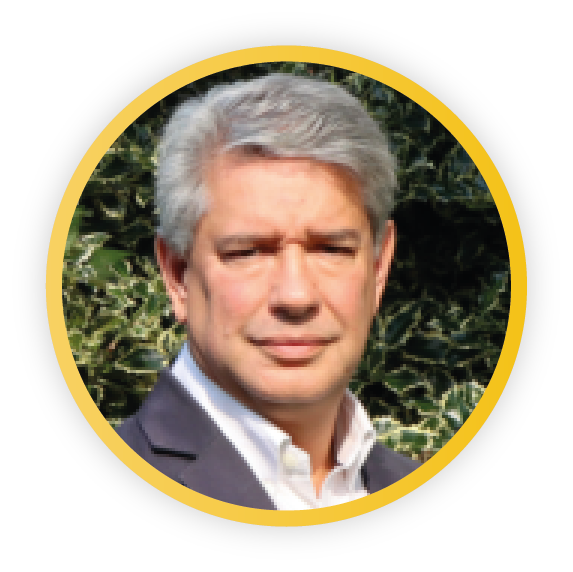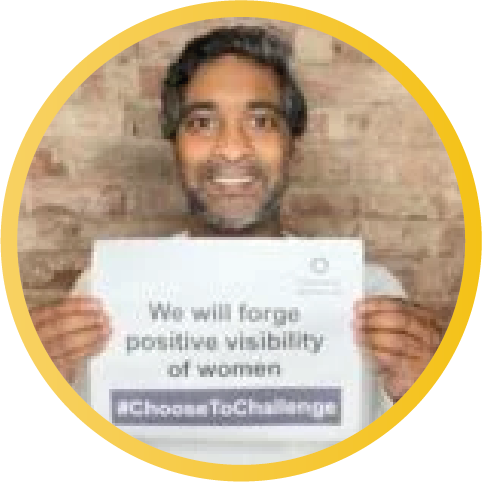TPC Team
There’s nothing worse than hating your job. It’s an all-consuming feeling; one that infects every corner of your life. When you’re unhappy at work, you carry that frustration and anxiety with you. It’s always at the back of your mind, putting a strain on your relationships, your passions and your ambition. So why do so many people settle for that overwhelming sense of unfulfillment? What’s holding you back from leaving a toxic work environment and finding career happiness on your own terms?
The short answer? You are. There will always be a million reasons not to make a career change – financial stability, familiarity, a fear of the unknown. But if you’re unhappy, it’s time you do something about it.
Finding your own career freedom

The world of work is changing, and dinosaur corporations are getting left behind. The pandemic forced us to dive head-first into a more flexible way of working, and what that resulted in was the realisation that traditional working habits just aren’t fit for purpose any longer. That’s why so many people are making the switch to portfolio careers.
Portfolio work was on the rise even before the pandemic, with the freelance and the gig economy growing 3x faster than the traditional workforce. The past two years have accelerated that boom on a global scale. That’s because portfolio careers let you make money doing the things you’re passionate about – you can combine several different jobs or income streams, meaning you’re in control of how you earn and how you work.
Now, 70% of businesses expect to use more part-time, temporary and freelance talent than they did before the pandemic. That means the opportunities are out there – and the potential for success as a portfolio professional has never been higher.
Learn by doing (and by asking questions)
We gathered a few members of our community to find out why (and how) they started their portfolio careers. Everyone involved came from a different industry or background:

Damien D’Souza spent 30 years running global entities at big tech companies. He headed business strategy and was a COO and CCO. Now, he works with clients on business/digital transformation, AI, decarbonisation, energy efficiency and mentoring.

Toni Mitchell spent 21 years in investment banking as a COO, transformation director and risk lead. In July, she decided to experiment with different paths. Now, she is COO of an electric vehicle market place, a public speaker and mentor.

Kevin Withane has a day job as a corporate lawyer and ethics & compliance director, but his portfolio career lets him explore his passion for diversity and sustainability. He’s also a non-exec director, startup advisor and founder of DiversityX.
This chat demonstrated that there is no one-set path for career freedom – it’s about knowing what you like and finding a balance that works for you. A portfolio career gives you the space to experiment and find that purpose.
“We have the tools now to be able to make these choices. You can put different hats on. You can have a different persona. That’s the thing that gives you confidence – the ability to choose and know you can do something that interests you.”
Damien D’Souza
Ready to leave your corporate job or try your hand at something a bit different? Here are a few tips from our experts to help you make the switch to a portfolio career.
1. Get your life in order
Career change is stressful because it impacts your whole life. That’s why it’s important to understand the minimum requirements you need to live. How much do you have to make to pay your bills? And how much can you put aside for enjoying life? Once you figure that out, pare it back to the bare minimum. That will give you a better view of what you realistically need to earn/ save.
Then make a list of goals and give yourself deadlines to achieve them. What do you want the next 3-6 months to look like? You don’t have to have all the answers right away – start with small steps like joining a community, networking or finding a mentor. Then decide what you love doing and what you’re good at. From there, you can start building out a more fully realised career plan.

“I started to think about my new career in smaller durations. It made me consider not just the different roles I could take and industries I could work in, but the impact as well. It was nice to have the freedom to have a go and know that if it doesn’t work out, I can try something else.”
Toni Mitchell
2. Remember you don’t have to quit cold turkey
The Great Resignation is a term that’s been on the tip of everyone’s tongue as of late. Though we’re big advocates for chasing your Ikigai (a Japanese concept often translated to ‘that makes life worth living’), you have to be smart about how you leave your old career behind.
Remember, you don’t have to quit your job outright if you don’t want to. There’s short-term financial security in keeping your day job, so it might be best to transition slowly by going part-time or experimenting with a side hustle or freelance work on your own time.
“Finding your purpose takes trial and error. You can try lots of things out. That doesn’t mean you need to give up your day job. You can dip your toes into creating content or trying to speak to people to get opportunities. It doesn’t always have to be paid.”
Kevin Withane
3. Find your community, find your purpose
Nobody knows all the answers right away. But you’ll know better than anyone else what works for you and what makes you happy. It helps to find a community you can rely on while you figure everything else out. That way you can ask questions and discover things about yourself through the experiences and insights of others.
The Portfolio Collective is just one option if you’re looking for those connections and learning opportunities (our Catapult course is a great place to start if you want to build your business foundations). Then there are places like LinkedIn which are great for establishing thought leadership and reaching out to other professionals. Not only will a community make you more comfortable with your career choices, it will help you feel less lonely.

“When I joined the Catapult course, I listened to other people’s journeys and it sparked new ideas in me. Just having that creative conversation with people at all different stages of their journey was so important. That discussion point is so useful to get your process going.”
Toni Mitchell
4. Give yourself room to breathe
There’s always a risk factor when you decide to go solo (which is why some people prefer to keep their day jobs). Just remember that it’s okay to give yourself space and time to unwind. Building a portfolio career takes time and work, but that doesn’t mean you should sacrifice your physical and mental health to achieve that success.
Don’t feel guilty about relaxing and don’t feel guilty about taking time off. We’re all human and we need to unwind. Momentum is good, but you can’t let it become all-consuming. Many of us who worked in big corporations are used to sacrificing our time and lives for the success of others. Damien, for example, went from working 75 hours a week in a big corporate to 100 days a year in his portfolio career – and he earns more now than he did before. He even takes Fridays off to spend time with his wife.

Ready to make the switch?
Portfolio careers are all about flexibility, freedom and the ability to do work that you’re passionate about. Millions of people around the world are realising the benefits of this new way of working, and it’s predicted that half the workforce will have a portfolio career by 2030.
Think this sounds like the right path for you? Come along to our monthly Community Welcome Call for new members to find out what a portfolio career could look like and how The Portfolio Collective can help you take those first steps towards professional success – and don’t forget to connect with our community!







